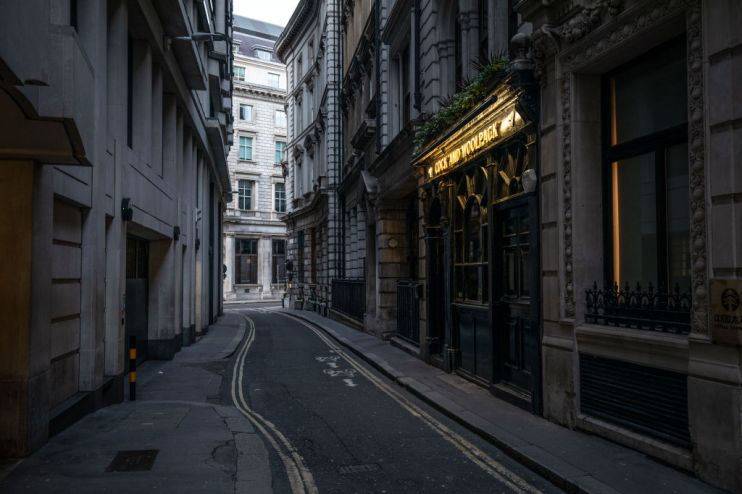Coronavirus hits hospitality: London without the pubs, bars and restaurants would be so much poorer

Living in London is not always easy.
Over recent years, a cottage industry has developed in newspapers’ features sections in which a previously harried writer explains why they’re glad they left the Big Smoke, the packed underground trains, the occasionally grubby air.
Good for them. But you try getting some decent Lebanese food at 10:30pm on a Monday in Bury St. Edmunds.
For millions of us, the pros outweigh the cons. One of the most important parts of that equation is the extraordinary hospitality industry that elevates the capital to the top tier of global cities.
That hospitality industry, from the haute-cuisine of London’s Michelin star community and wine lists like that found at Boisdale’s to the century-old pubs like The Ship in Holborn and the jerk chicken at Fish, Wings and Tings in Brixton Market, is in trouble. It is in the crosshairs of Covid-19, and the fear is that the virus might just win.
It’s hard to overstate the work that restaurateurs, cafe owners and landlords put in to building their businesses. The margins are tiny, the hours are long, and Councils seem to be dedicated to making one’s life as difficult as possible.
But they, to borrow a phrase, bugger on. They employ staff who are making their lives in a foreign city or doing a few hours a week to pay for their studies, and provide the buzz, excitement and vibrancy that makes the capital great; that make having to deal with the Central Line worth it.
They also provide a remarkable stability in a city that changes ever more quickly. Even in London’s many ‘villages,’ you can still find a locals pub or a well-regarded Indian takeaway; when two Kennington residents meet, it isn’t long before they mention the Kennington Tandoori.
The government’s emergency loan scheme to get these businesses over the hump of Covid-19 has been under fire from all sides, and the hospitality industry is in much the same place. Running on tiny cash buffers, the interruption in service has hit hard.
Banks have little incentive to loan to businesses with the sort of balance sheets common in the industry, fearing the government will ask why they didn’t do due diligence if the restaurant, cafe or pub goes to the wall after the immediate crisis peak. Boisdales’ Ranald MacDonald makes that crystal clear today in City A.M.
There is an assumption that life will go back to normal after this crisis. For the hospitality industry, not so much. Not only will they be the last to be allowed to re-open, they are likely to have to deal with new restrictions on numbers and work out how to pay back the rent they’ve ‘deferred’ in this immediate crisis as well as getting their old punters back through the door. Some of them are already bogged down in trench warfare with their insurers.
They will also have to deal with, amongst other things, a business rates system that remains broken, a proposed immigration system which will make finding junior staff nigh on impossible, and a global recession.
The knock-on effects of London losing its lustre as a hospitality destination don’t bear thinking about. It was less than 50 years ago that images of black rubbish bags piling up in Leicester Square were beamed around the world, doing untold damage to the country’s reputation abroad.
A forced rebuilding after this crisis will not be unique to the hospitality industry, but it will be difficult. In the immediate term, the Treasury needs to ensure the banks genuinely are putting their backs into lending.
In the medium and long-term, on issues like rates and immigration, the industry will need a sympathetic ear in government to ensure its survival. Let’s hope it finds one.